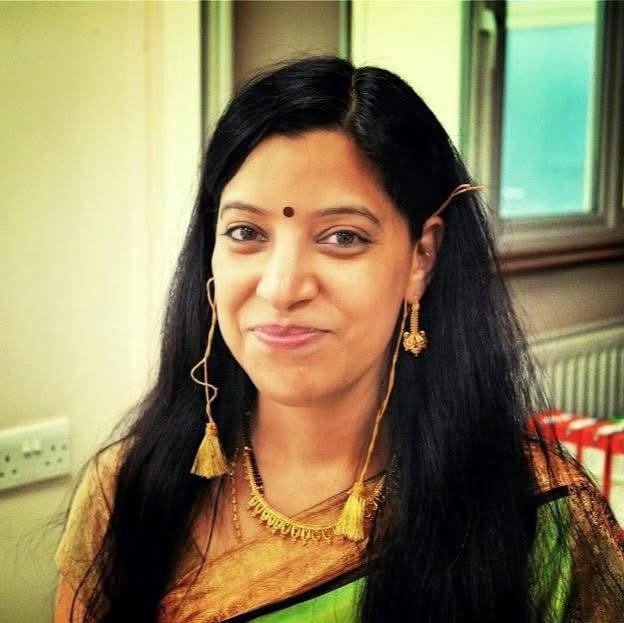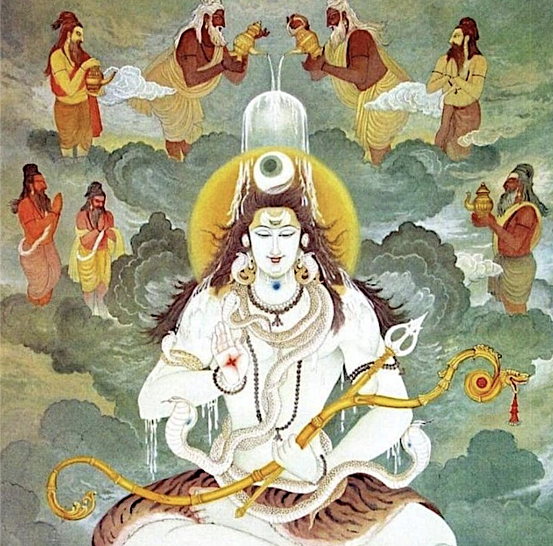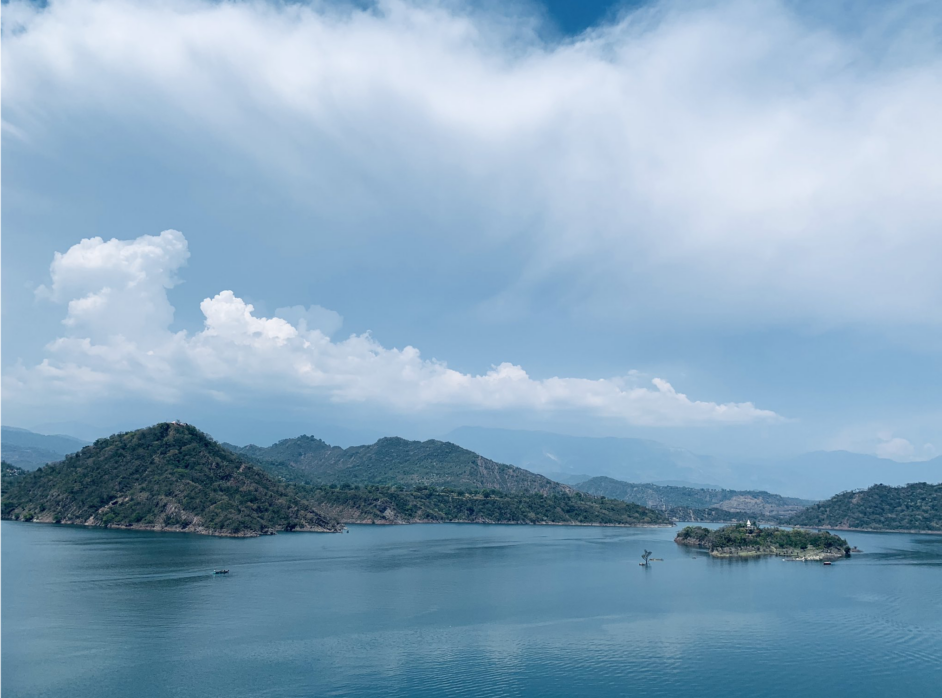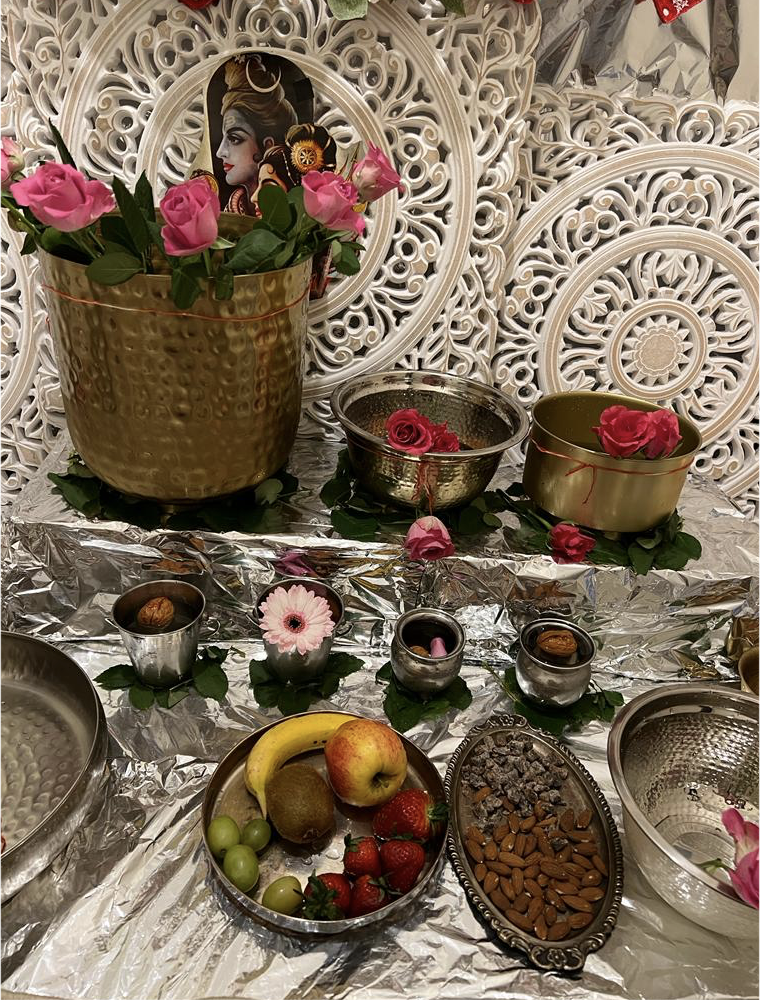
‘लोकचारिच सो हेरथ, छम न मशान’
Sanjla Misri Nautiyal
हाय वालान कूनव कूनव, लेफवोरि मसलंद त पर्दअ् छलान
तअरि गटकारस मंज़ घर शूबिरावान, डुवान शेरान त बान् सुरवान ।
हवन सामग्री, डूइन, कंद सोमब्रान,असि अय्स पोशन माल करान
वारियाह मश्योम त वारियाह मशरोवुम, लोकचारिच सो हेरथ, छम न मशान ॥
From all nooks and crannies of the house, we used to remove spider webs/ wash beddings/ curtains and clothes of use. During the severe, cold, snowy winter, we would make utensils sparkling clean, tidy up and decorate our houses. We would collect all Havan Samgri, Walnuts, Sugar cones etc, and flowers to make garlands.
डोन्यन छल्नुक श्रौञ कनन गछ़ान ओस, नोशि माजि छलिथ घर अय्स च़ानान
अन्न ह्यथ आय ह्यथ सोख त सम्पदाह ह्यथ राम ब्रोर बरस प्येठ ओस प्रारान ।
बूज़िथ सु ठुक ठुक ज़यि्ठ घरिक अय्स यिवान, लोल् सान घर की बर्र मुच़रान
वारियाह मश्योम त वारियाह मशरोवुम, लोकचारिच सो हेरथ, छम न मशान ॥
We used to hear the splashing and sloshing of walnuts being washed outdoors by daughters-in-law of the house; they would bring the washed walnuts inside the house. Them coming into the house with the walnuts was the symbol of welcoming Lord Shiva (Ram Bror) into the house for the festival and with Him he would bring in happiness, good health, long life, wealth, and prosperity for the family.
वटकयच जाय सो गंडिथ अ्स, वागिर बाह दोह गोडिन लिवुन फश दिवान
प्त्त्त डोन्यव बरिथ गागरि त सोनपोतिल, दरबस त आरि पय़ठ अय्स थवान ।
वटक मसाल सय्त थाल बरान अय्स, हवन कुंड ज़न ओस खूब शोलान
वारियाह मश्योम त वारियाह मशरोवुम, लोकचारिच सो हेरथ, छम न मशान ॥
We had a fixed place in the house where Panditji or the eldest member of the family would set up the ‘Watuk’ every year. We used to clean the place first and then we would start laying the Watuk. We would fill various pots with washed walnuts and put those on rings made out of grass and hay (Aari). We would mix all Havan samgri and put it in big Thalis ready for everyone to offer ahutis to the bright Havan kund for Gauri and Shankar on their wedding anniversary.
सेंद्रि टयेकि सय्त असिस ओमकार बनावान, ड़ूइन दोध्, कन्द मूल बरि बय्यर बरान्
वुसिर अ्सिस लोल सान गंडान, पोश माल असिस नय्ल त्रावान ।
रोप वरखव सीत असिन सजावान, वटुक राज़ ओस ज़ोतान त प्रज़लान
वारियाह मश्योम त वारियाह मशरोवुम, लोकचारिच सो हेरथ, छम न मशान ॥
We used to make nice big Omkar on the surface of the biggest pot called Watuk Raazi (symbol of Lord Shiva), with Orange Tilak (Sindoor) and fill the pot with walnuts, milk and sugar cones with all good faith. We used to tie garlands made of Apple stone leaves (Vusir) around the neck of the pot; we also used to put garlands made of Marigold flower around the neck of the pot.
We would decorate it with Silver foil so Watuk Razz(Shiv ji) would look bright and vibrant – spreading positive vibes all around.
क्याह अय्स व्यस्तरिथ वटख पूज़़ाह करान, उमा शंकरस रतनदीप आवलान
गंटाई टंकार त शेंख शब्द दिवान अय्स, तुम्बक्नारि ह्यथ भजन ग्यवान् ।
रीथ हयन्द सयिन-गाड्, नाना प्रकार व्यंजन्, वटकस श्रदाय सान भावान
वारियाह मश्योम त वारियाह मशरोवुम, लोकचारिच सो हेरथ, छम न मशान ॥
We used to do elaborate prayers with all family members sitting together for hours and lighting oil/ghee diyas while offering prayers to Uma(Parvati) and Lord Shiva. Chiming the bells and blowing divine conch while doing prayers and singing bhajans whilst playing the Tumbaknari (tabla like instrument). As per the tradition the ladies of the house would cook various dishes – meat/ fish/ moong dal/ spinach / radish etc and offer rice/ chapatis and dishes to Lord Shiva.
किशमिश, बादाम, काजू त नाबद, शौक सान डूइन त च़ोच व्य्यर खयवान
शुरि अय्स बडड शौक सान गछान्, मोह्लस त अशिनावन डूइन बअगरान ।
नच़ुना त गिन्दनाह सरीय करान अय्स, खान्दर गरस मन्ज़ ओस बासान
वारियाह मश्योम त वारियाह मशरोवुम, लोकचारिच सो हेरथ, छम न मशान ॥
We would enjoy having a variety of dry fruits – Raisins/Almonds/Cashew nuts/ sugar crystals walnuts and rice chapatis etc after the prayers. Kids would love to go to neighbours and relatives’ places to distribute walnuts. Dancing and playing festival would pass by, leaving the feeling of marriage celebrations at home.
इक्ववटई हारन त तासस गिंदान अय्स, गिंदान गिंदान अ्स राथ रावान
हेरथ खर्च खअत्र कूत अय्स प्रारान, कअर कअर कर्विन अय्स नोट मेलान ।
गौरी शन्कर् पान ज़न यिवान अय्स, अन्न,धन, अ्ही ह्यथ, सथ पनिन थवान
वारियाह मश्योम त वारियाह मशरोवुम, लोकचारिच सो हेरथ, छम न मशान ॥
We used to play Cowrie shell games (Haari) and so many card games that we would sometimes not realise when nights would pass by. Elders used to give money to all youngsters as a gift(Herath karach) and that used to be one of the most awaited time for kids. We would feel the presence of Lord Shiva and Gauri Maa around us showering their blessings for our good health and happiness.
अज़ ब यति छस पगाह ब हुति छस, गंडिथ जाय वटकिच स्वपुन वय्न बासान्
तोतयि में थव्मच़ रीथ छ जअरी, घर सफाई छस करान त वटुक छस ब बरान ।
हेरथ खऱच शुरेन दिवान छस ब, डूइन त च़ोच व्य्यर छस बनावान
यि करान हु करान सअरिय व्यवहार करान छस, लोकचारिच सो हेरथ, छम न मशान ॥
Everything has changed now. I move places almost every few years. Having fixed place for laying “Watuk”, seems like a dream now. I am still following this tradition, I clean the house around and I lay Watuk wherever I am. I give gifts (Herath Karach) to kids, and I make various offerings for the Lord. I try and do everything, but I can never forget the warmth enthusiasm and fervour with which we used to celebrate Shivratri during my childhood days!!
A beautiful recitation of this poem can be accessed here:






